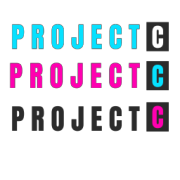
🌱 The Coded Gaze | AI's Social Impacts
Part I: The Social Impacts of AI, Tech & Surveillance
Welcome Back! 👋🏼
The new era of tech has arrived! Have you heard? This month, we're digging into the artificial intelligence hype and separating marketing from reality, getting real about the real-world impacts AI has unleashed, and discovering how members of the Global Majority are approaching AI. Read on for more...
In Case You Missed It: Returning from Scorched Earth
The Coded Gaze | AI's Social Impacts
Part I: The Social Impacts of AI, Tech & Surveillance (See Part I, II, III, & IV)
AI: A New Tech Era
In late 2022, Chat GPT was released to the public. That’s really when the hype machine for artificial intelligence started to rev up. It’s like Silicon Valley hit a switch and then AI was everywhere. Over a third of people in the U.S. have used artificial intelligence tools for everything from creating AI photo memes for their group chats to answering questions to making friends with an algorithm. That stat is probably much higher now. The speed at which AI has come to dominate surprising corporate spaces (Anyone want 2,010 chicken McNuggets?) would cause whiplash for most luddites or laggards.
So this month, I wanted to talk about it. The speed at which corporations and the Tech industry are pushing AI onto the public is always something to pause and consider why and what's the incentive. Our lives are increasingly played out online so it’s important that we continue to be cleared-eyed about the intended and unintended consequences of tech. Both how it impacts ourselves and our societies on a macro scale.
What’s The Hype All About?
First, we have to level-set on what we are actually talking about. Artificial intelligence is not new and the definition has been fluid as its capabilities have grown. When Chat GPT and the AI hype emerged, I identified many familiar elements to my corporate advertising days.
In fact, it seemed really similar. 🤔 So I decided to find tech experts from the Global Majority explain what was true and what's obscured by Silicon Valley's flashy marketing campaign. Lo and behold, what is now AI is not exactly what everything thinks.
After reading Dr. Joy Buolamwini's (she/her) book, Unmasking AI: My Mission to Protect What Is Human in a World of Machines, I asked Dr. Linda Berberich (she/her), Founder and Chief Learning Architect specializing in innovative learning technology, to explain what AI really is. (Stay tuned for our full podcast chat next week!)
“Sure, I'll give you my hard, no-holds-barred opinion on what AI is. It is a marketing term and was introduced as such in the 1950s. What we're talking about here is machine learning. Machine learning, as we know it currently, is statistical learning.
In fact, AI is not new at all. If we take you back to the 90s and you remember the times before the internet was widely available, You would remember Gary Kasparov playing chess against Big Blue. Big Blue is IBM's AI, right? But here's the thing, are most things in life like playing chess? It's not, right? There's all kinds of diversity of human behavior. Not all of it is based on probability, chance, outcome, not even chance outcome.
So it's really not a good model for modeling all of what encompasses human behavior. And it's also rife with bias, depending on who is putting together the datasets that are informing this AI. So that's a little bit about what AI really is versus machine learning, which it actually is.
The Smoke Screen of AI | Labeling & Classification
It’s a hard truth for many techies to swallow that the AI of today is not the AI of The Terminator or Her’s Scarlet Johansson AI, as much as Sam Altman creepily wishes. When I hear people talk about AI’s potential, I can tell who understands the technology behind it and those that don’t. As Linda explains, the "intelligence" part of AI is really just labeling and classifying data to then produce what the machine thinks is the best answer based on the dataset and the users prompt.
So when we think of AI as being omniscient and capable of being almost human, they are really just mimicking what they have been trained on. When I hear that, I immediately wonder who is behind the training. As Dr. Joy mentions in Unmasking AI, Kate Crawford calls it the politics of classification. There is real power in deciding how to classify.
“In a world where decisions about our lives are increasingly informed by algorithmic decision-making, we cannot have racial justice if we adopt technical tools that only further incarcerate communities of color.”
– Joy Buolamwini, Unmasking AI
Gender is once again a great example for this. A well-classified database is needed to create AI, but...
- What happens when the people behind AI make the decision to only classify faces by the gender binary of male and female?
- When our society defines gender as a binary, then who gets left out when society is classified?
- What gets missed when we only classify on a binary? How does that impact the collective?
- And the most telling question, can a machine even determine gender?
The last answer is of course no. Gender is an internal experience that a person experiences. Many company's no longer use gender as a classification for this reason. When they do, it's called "perceived gender." While this is a step in the right direction, gender is just one example of how the bias of the people involved in developing AI can spill out. If we carry the implications into society, we can see how technology can lock us into a binary existence where classification is more important than the richness of the human experience. Over time, classifications become “truth” and we stop questioning it.
What About the Social Change of it All?
While I see really important and helpful applications of AI, I have serious concerns over how it's being applied in the real world today. As an advertising expert, the first thing I look at is what data are they collecting, how, and why. Behind the glitter of the marketing hype are some really big questions around:
- Intersectionality & Identity
- Silicon Valley Dominance
- Using Old, Racist Data
- Power & Wealth
- Information & Social Control
- Degrowth and the Climate Crisis
- 1st Amendment, Surveillance, and the Police State
AI is a very serious threat to the progressive change we are working towards for many reasons and AI can be a tool to assist us in solving the big problems of today. We can't build a better world on old and outdated data. We need human creativity for that! Next week, we’ll discuss the origins of the tech bro and how a lack of intersectionality in AI can lead to real life consequences.
Enjoying our newsletter? Subscribe for the full monthly series, learn how to navigate 🧭 social change activism in our digital world, and support our 100% reader-supported work.

- 📚 The Ableist Media Coverage of Biden’s Age - The Economist’s recent cover photo is deeply ableist, showing the presidential seal affixed to a walker. The implication being that anyone who uses a walker is unfit to be President. Catarina Rivers outlines how and why much of the media coverage is ableist.
- 🤓 The Root 🌱 - As voters, we are absolutely allowed to question a persons fitness for office, but not this way. Ableism is so deeply embedded in our society, it often goes unnoticed unless it deeply impacts you. Stop assuming and start noticing how spaces and phrases are ableist. We are discussing disability considerations for your communications in this Fridays newsletter.
- 📚 Documentary Film Producers Fight AI - Three women who founded The Archival Producers Alliance are demanding guardrails on using AI generated image. Their concerns include using AI for archival footage and presenting it as real in documentary films.
- 🤓 The Root 🌱 - This is a big one in a time of decaying trust. Generated material presented as 'real' in a documentary film may be reused and spread across the Internet quickly. Maintaining trust in the documentary industry is important when disinformation is abundant online.
- 📚 Congo Exploitation & Poverty Explained - The Congo is often included in the list of exploited nations, but not many people in the West understand why. This IG video from @morganlynzi explains how the riches of Congo are exactly why the people are exploited.
- 🤓 The Root 🌱 - Portraying African nations in a one dimensional way, perpetuates colonial stereotypes. The media’s stereotypes of impoverished African countries maintains racist thinking that allows businesses to exploit the land and people with impunity.

🤓 Research, research, research
Project C, a newsletter built for independent journalists, just released a treasure trove of new audience and media consumption studies to dive into. You can go spelunking through the data in the link below. Here are the tidbits that jumped out to me:
- The most obvious deet is people are increasingly getting their news from influencers on social media
- TikTok news consumers are less likely to say they feel worn out by the news compared with news consumers on other social sites
- People also have a broader view of news than before which could include Taylor Swift talking about the election
- Trust in social influencers and creators are higher than traditional news sources
These studies push back on the myth that Gen Z, Alpha, and Millennials aren’t clued into the news. In fact, they reject cable and print news sources in favor of sources that speak to their needs. Read our tips on getting creative with audience research for your strategy work.


It's after a holiday week, but I'm still very much ready to callout SCOTUS' actions and mobilize more people to take action and vote. Find our latest videos on our 🎬 Quick Bites page.
@roots.of.change They did it! SCOTUS ruled Trump is immune. What does it mean for us? scotus supremecourt election2024 uselection2024
♬ original sound - Sam @ Roots of Change - Sam @ Roots of Change
And that's a wrap on this week’s newsletter! We hope you found this helpful in your work. Forward this to a friend and help democratize communications! If you have any topics you want covered or have any questions, please reach out and let me know.
In Solidarity,
Sam Chavez
Roots of Change Founder
the roots of change media Newsletter
Join the newsletter to receive the latest updates in your inbox.




